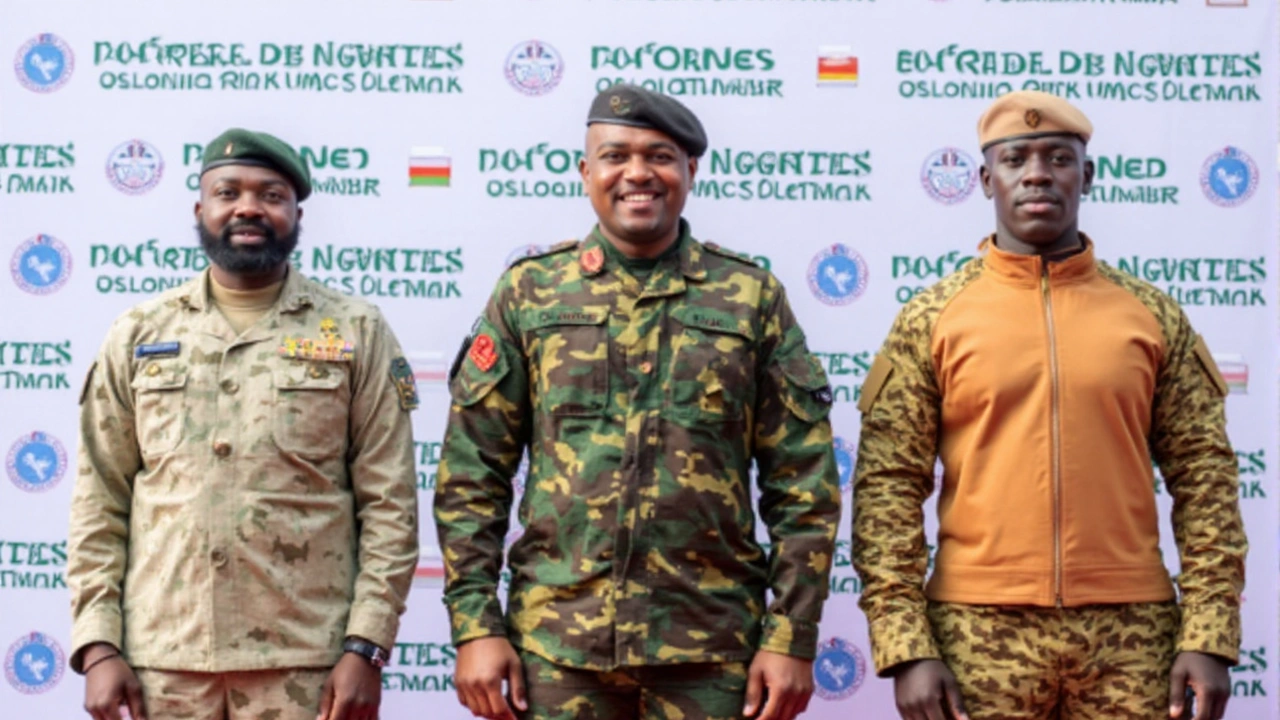West Africa Faces New Reality as Mali, Burkina Faso, and Niger Split From ECOWAS

Three Countries Shatter West Africa’s Status Quo
When Mali, Burkina Faso, and Niger—now calling themselves the Alliance of Sahel States (AES)—announced their formal withdrawal from ECOWAS, jaws dropped across West Africa. This isn’t just a paperwork shuffle. It’s the biggest shake-up the region’s integration project has faced since ECOWAS was born in 1975. And with the split set to take full effect on January 29, 2025, leaders everywhere are scrambling to figure out what comes next.
The reasons behind this breakup run deep. Mauritania, for example, left ECOWAS back in 2000 over mostly economic and cultural fit with North African countries. But the AES trio is different. Their departure screams frustration—over security, governance, and a sense that ECOWAS wasn’t cutting it, especially on *security*. These countries feel like they’ve been left to fend for themselves against terror groups and violent extremists creeping further into the Sahel.
Security First: A Different Approach Emerges
Back in 2023, Mali, Burkina Faso, and Niger set up the AES to look after their own security first. By 2024, they’d decided that banding together wasn’t just about defense; it was about running their countries on their terms. They stopped waiting for someone else to step in, and their break from ECOWAS shows just how fed up they’d become.
But here’s the catch—they can’t just pack up and leave their neighborhoods behind. All three countries are landlocked. If they want to trade, they have to keep using ports in coastal ECOWAS members. That alone keeps them tied to their former bloc, no matter how unhappy the divorce gets. Maybe that’s why some ECOWAS leaders like Ghana are playing things smart. Ghana has sent a special envoy who knows his way around counter-terrorism to keep lines open with the AES. Togo is also cutting deals, eyeing the opportunities left behind.
This isn’t just theoretical cooperation. Nigerian Foreign Minister Yusuf Tuggar’s trip to Niger wasn’t a grand gesture. It was smart politics—keeping doors open because, at the end of the day, all sides know they can’t afford closed borders, stalled trade, or terrorist spillovers. Real needs are forcing a new kind of pragmatism in the region.
Meanwhile, the African Union and ECOWAS met on May 16, 2025, and yes, they called the AES split a big worry. But they also leaned into dialogue, acknowledging the reality: cooperation has to go on. Security, trade, free movement—these are non-negotiables if the region is going to manage its many challenges.
Outside West Africa, international partners are feeling the heat too. The split means the European Union, the US, Russia, China, and others have to rethink how they engage with the region. Security operations, investments, and political partnerships all need refreshing. The uncertainty only increases with global powers recalibrating strategies against a backdrop of a second Trump administration in America, known for unpredictable foreign policy shifts.
Experts aren’t calling for sanctions and isolation anymore. The old playbook hasn’t worked. What’s taking hold now is a call for strategic and flexible dialogue—sometimes even on an ad hoc basis. The point is to keep the lights on for cooperation, even if the old structures are falling apart. If ECOWAS and the AES can keep talking, there’s a shot at managing the fallout and maybe—just maybe—finding new ways to work together.
President Mahama of Ghana summed it up during a recent tour: AES isn’t going anywhere. It’s now a permanent fixture. The challenge is whether the region can adapt, keep vital connections, and focus on what actually matters—peace, jobs, and a future where West Africa handles its own problems.

Shelby Mitchell
August 16, 2025 AT 18:06mona panda
August 17, 2025 AT 01:20Trevor Mahoney
August 17, 2025 AT 21:39Jitendra Patil
August 17, 2025 AT 23:04Michelle Kaltenberg
August 18, 2025 AT 12:01Jared Ferreira
August 19, 2025 AT 01:26Kurt Simonsen
August 19, 2025 AT 17:36Evangeline Ronson
August 20, 2025 AT 15:18Cate Shaner
August 20, 2025 AT 19:49Thomas Capriola
August 21, 2025 AT 08:39